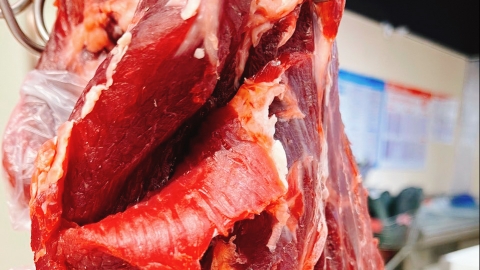Can kelp and beef be eaten together?
Generally speaking, kelp and beef can be consumed together, but should be eaten in moderation. The specific analysis is as follows:

Kelp is rich in nutrients such as iodine, calcium, iron, dietary fiber, alginic acid, and mannitol. Iodine is an essential raw material for synthesizing thyroid hormones, which helps maintain normal metabolism and growth and development in the body, prevents iron-deficiency anemia, promotes intestinal peristalsis, and prevents constipation. Beef contains abundant high-quality protein, iron, zinc, and B-complex vitamins. These nutrients help muscle growth and repair, prevent anemia, support normal immune system function, and promote wound healing.
Combining kelp and beef in the diet provides more balanced and comprehensive nutrition. The high-quality protein in beef works synergistically with the various minerals and vitamins in kelp to offer enhanced nutritional support. The dietary fiber in kelp aids in the digestion and absorption of beef within the intestines, reducing potential digestive discomfort that may result from high-protein foods. The iron content in both ingredients works together more effectively to prevent iron-deficiency anemia.
However, it's important to consume them in moderation. Kelp has a cold nature, and excessive consumption may impair the spleen and stomach's yang energy, leading to symptoms such as abdominal pain and diarrhea due to spleen and stomach deficiency-cold. Beef is a high-protein, high-fat food, and excessive intake may lead to excessive calorie consumption, increasing the risk of obesity and cardiovascular diseases. In all cases, balanced nutrition and moderate portioning are key. If you have any health concerns, it is recommended to consult a professional doctor or nutritionist.







